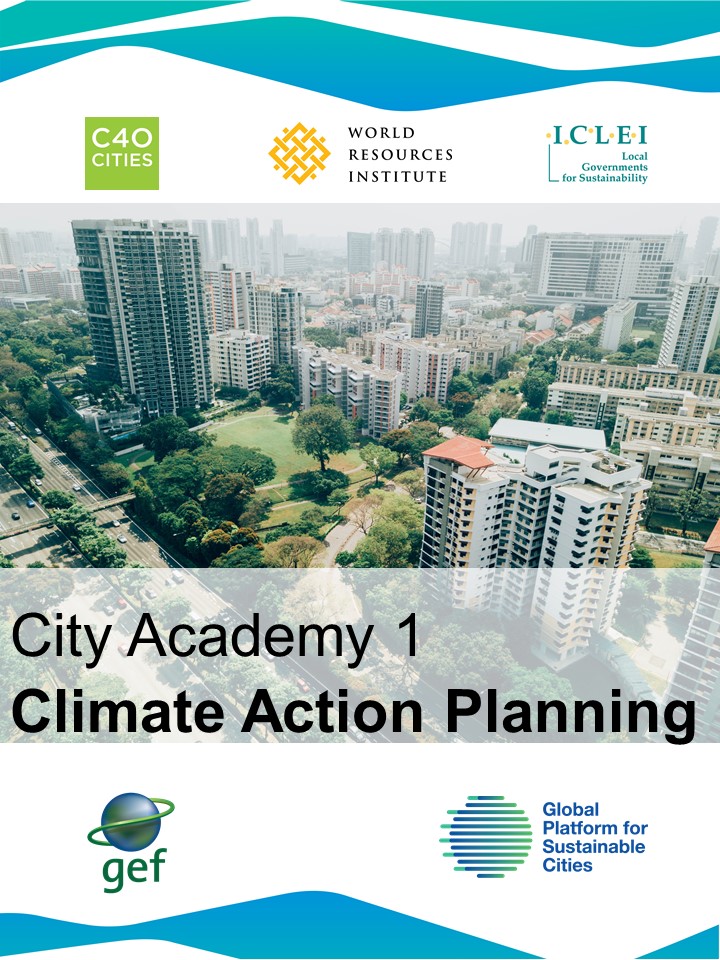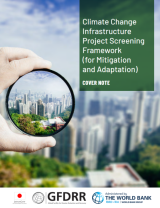
-
Country/City
World
-
Topics
Climate Change, Biodiversity, Climate Action Planning
-
Published On
September 16, 2019
The City Academy was co-organized by the GPSC Resource Team, the consortium made up of C40, ICLEI and WRI. This academy had the following objectives for participants:
Understanding that climate action in cities are deliberate efforts to reduce GHG emissions and adapt to the impacts of climate change.
Raise awareness that Climate Action Plans are instruments to accelerate action that require collaboration across multiple sectors and stakeholders.
Understanding the importance of cities in the global efforts to tackle climate change. Cities are convening places to accelerate climate action and harness economic and social benefits.
Identify the wealth of tools, resources and protocols that are available for city practitioners to further consult and advance their understanding about local climate action planning.
Recognizing that other cities around the world are taking action and there is an opportunity to learn from city peers.
Below is an outline of the two-day event’s agenda, along with several of the presentations which are available for download. You can download the summary report here.
DAY 1. Planning
The climate urgency and the opportunity for cities Andrea Fernandez, C40. Explaining the global framework on the importance of local climate action: 1.5 degrees IPCC Summary for Urban Policy Makers, Global Covenant of Mayors (GCoM).
Climate Action Planning in Cities. Where to start? What have we learned so far? Jana Davidova, C40. How to build a climate action plan? Overview of the process: commitment, governance, synergies. Types of plans. What it means to develop a 1.5 degree aligned plan, with a brief introduction to online resources for further consultation. Case study: An overview of São Paulo’s journey to develop a climate action plan – what have we learned? Laura Lucia Vieira Ceneviva, São Paulo City Hall.
How to use GHG inventories as a supporting tool for decision-making? Cesar Carreño, ICLEI. Introduction to GreenHouse Gas Protocol (GPC), relationship with the GCoM’s reporting framework, and vertical integration of GHG data. What is the motivation of developing GHG inventories? What is the process of developing GHG inventories? How does the data support decision-making? Wee Kean Fong, WRI. Case study: Baja California Sur, Mexico.Luis Soliz, Baja California Sur.
How to conduct a risks assessment? Jana Davidova, C40. Why is it necessary? Relationship between adaptation and mitigation. How to identify and assess current and future climate hazards? – What do you do with the information collected? Overview of C40’s Climate Risk Assessment Guidance and Adaptation and Mitigation Interaction Assessment tool (AMIA).
DAY 2. Implementation
How to prioritise climate actions? Andrea Fernandez, C40. What are major actions cities can take to mitigate emissions with the largest impact? Overview of C40’s Focused Acceleration Report. Case study: New York City Action Prioritisation (as a best practice example).
Making the case I: How to leverage co-benefits of climate action to get everyone excited about it? Lina Lopez, C40 City Advisor Medellin, Colombia. The co-benefits of inclusive climate action (health, inclusivity, economic). Case study: Medellin Climate Action Plan – Focus in Air Quality.
Making the case II: How to engage with relevant stakeholders to get a strong implementation coalition? Maryke van Staden, ICLEI World Secretariat. Mapping stakeholders, engagement strategies, the importance of an inclusive approach, identifying synergies and integration opportunities and engagement with business community. Case study: Climate Change State of Pernambuco, Inamara Santos Melo, Pernambuco State, Brazil.
How to coordinate actions between different levels of government? Wee Kean Fong, WRI. Importance of vertical integration. How can cities achieve more through collaboration?
City Clinics: Presentation of city challenges (Parts I and II). Simultaneous short presentations by the GPSC city delegates on specific challenges from their cities to get feedback from other city delegates. Case studies: Abidjan, Beijing, Dakar, Lima, Xalapa.



